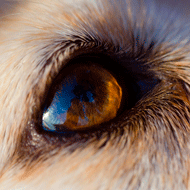
UK case thought to have been imported from Romania
Parasitologists from the University of Liverpool have reported the UK's first known case of canine ocular thelaziosis in a dog that had been recently imported from Romania.
Worms were discovered on the conjunctiva of the dog, which was otherwise healthy, during a routine general anaesthetic for elective surgery in March 2016.
The one-year-old male collie cross had been imported six weeks earlier and parasitologists suspect it is a case of imported canine ocular thelaziosis. In Romania, Thelazia callipaeda was recently identified as endemic.
All visible worms were removed from the dog and sent to the Liverpool Veterinary Parasitology Diagnostics, where they were identified as T. callipaeda, although additional analysis by PCR to confirm this is pending. Meanwhile the dog was treated with a single dose of 10 per cent imidacloprid and 2.5 per cent moxidectin, and no further problems have been reported.
T. callipaeda is a vector-borne parasite that requires an intermediate host. In Europe, this has been identified as the male drosophilid fruit fly, Phortica variegata, which has been recorded in the UK, meaning T. callipaeda could potentially become endemic in this country.
In recent years, its spread has been documented in several European countries, including France, Italy, Spain, Portugal, Greece, Belgium, Germany, Croatia and Serbia.
Writing in Vet Record letters, the researchers said: 'This case raises awareness of a new imported disease and highlights the ongoing risks associated with pet travel and importation, and the need for vigilance when examining these animals.'



 The latest
The latest